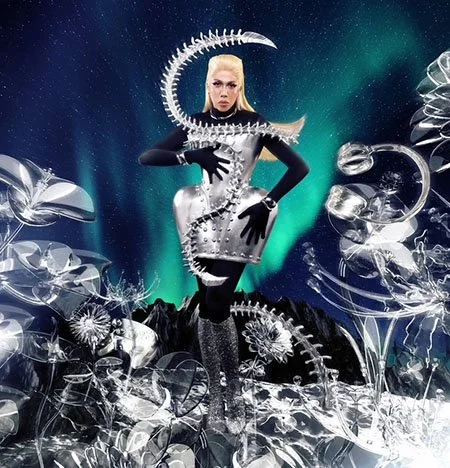Vice Ganda’s Humor Bites Both Celebs and Pols
/Vice Ganda (Source: Instagram)
With his razor-sharp tongue and quick comedic timing, Vice has elevated the art of insult comedy into a uniquely Filipino form of social commentary, blending sarcasm with charm so deftly that even his “victims” often end up laughing along.
From the start of his career in stand-up bars to his current reign as one of the most recognizable television personalities in the country, Vice has consistently used humor as both a shield and a sword. In his comedy, celebrities are fair game. He teases fellow stars about their cosmetic surgeries, failed relationships, and on-screen flops, always with a mischievous grin that disarms even the most sensitive egos. These “pot shots” work because Vice makes them feel like part of an inside joke—a shared wink between the comedian, the subject, and the audience. It’s a style that thrives in Filipino pop culture, where roasting can be a form of affection and quick-witted banter is a sign of intimacy.
Vice Ganda (Source: Instagram)
But Vice’s comedic reach goes far beyond the entertainment industry. He has, on numerous occasions, taken aim at politicians—those who, by virtue of power, influence, and public scrutiny, make ripe targets for satire. These barbs are often wrapped in humor so exaggerated that they land somewhere between parody and punchline. Yet beneath the laughs lies a subtle critique—Vice’s way of questioning the inconsistencies, excesses, or controversies of those in office without lapsing into overt political speeches.
His most recent concert made headlines for one such skit—a theatrical send-up of former President Rodrigo Duterte’s infamous, unfulfilled campaign promise to ride a jet ski to the West Philippine Sea and plant the Philippine flag on contested islands. On stage, Vice, dressed in flamboyant “nautical” couture, mimed the popular Jet2 Holiday Internet meme, “Nothing beats a Jet2 Holiday.” The act didn’t stop there: it ended with a twist in which Duterte, instead of reaching the islands, was met by the International Criminal Court, which promptly “arrested” him for alleged crimes during his presidency. The audience roared—not just at the absurdity of the visuals, but also at the audacity of skewering such a politically charged subject in a mass entertainment venue.
Vice Ganda (Source: Instagram)
Not everyone was laughing. Duterte supporters quickly took to social media to denounce the skit, calling it disrespectful and politically motivated. Some launched calls to boycott Vice Ganda’s shows, while others targeted the brands he endorses, most prominently McDonald’s, urging consumers to “withdraw support” as punishment for what they saw as an attack on their “Tatay Digong.”
This was not the first time Vice has faced backlash for crossing a perceived line. In the past, he has issued public apologies for some of his more controversial antics—most notably when he body-shamed broadcast journalist Jessica Soho in a comedy routine, an incident that drew widespread condemnation from both media professionals and the public. That episode served as a reminder that Vice’s tightrope act—pushing boundaries without tipping into outright offense—is fraught with risk.
One of Vice’s comedic strengths is his ability to make political humor accessible to a mass audience. Many Filipinos are wary of direct political confrontation, but Vice uses humor as a Trojan horse, slipping in commentary under the guise of entertainment. In doing so, he invites his audience not only to laugh but also to think. A joke about a politician’s hypocrisy or overblown ego, delivered with impeccable timing and facial expression, can stick in the public’s mind far longer than a scathing editorial.
Vice Ganda proves that in the Philippines, comedy can be both a mirror and a slingshot.
The Villar family—known for its vast business empire and political clout—has also found itself on the receiving end of Vice’s quips. Whether it’s poking fun at the Villars’ real estate developments, alluding to their wealth, or making light of their ubiquity in politics, Vice approaches such topics with a mix of playful irreverence and calculated provocation.
It’s this balance of fearlessness and likability that makes Vice’s biting humor so effective. He pushes boundaries without entirely crossing into malice. His jokes may sting, but they are usually delivered with enough theatricality, camp, and self-deprecation to soften the blow.
Still, there is no denying that Vice Ganda’s humor has become part of the cultural fabric. In a country where entertainment often doubles as a coping mechanism for political and social stress, Vice’s blend of showbiz gossip and political satire offers both escape and engagement. Whether skewering a celebrity for a box-office flop, lampooning a president’s quirks, or mocking a political dynasty’s privilege, Vice Ganda proves that in the Philippines, comedy can be both a mirror and a slingshot. And in that laughter, there is a quiet but potent form of resistance.
Rene Astudillo is a writer, book author and blogger and has recently retired from more than two decades of nonprofit community work in the Bay Area. He spends his time between California and the Philippines.
More articles from Rene Astudillo






